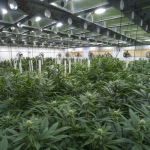Yup...and have no problem with it.Boooringgg.
Trudeau’s nitrogen policy will decimate Canadian farming
- Thread starter B00Mer
- Start date
You are using an out of date browser. It may not display this or other websites correctly.
You should upgrade or use an alternative browser.
You should upgrade or use an alternative browser.
"Everything in moderation" necessarily includes moderation in moderation. If ya don't get a good high or piss-up once in a while, you're just a moderation junkie.Them too....Good thing I have no bad habits, eh?.....lol
Just try to arrange a backstop or two when you decide it's your time to howl.
At present, according to the latest census, just two per cent of Canadians are “farm (or ranch) operators.”
The numbers are a bit higher on the Prairies: 10 per cent in Saskatchewan, four per cent each in Alberta and Manitoba, but long gone are the days when a third of us lived on farms. Gone, even, are the days when we or our parents grew up in rural Canada, then moved to the city.
Most Canadians don’t even have cousins who farm.
All of which goes a long way to explaining how our prime minister, a trust-fund baby who grew up in the sheltered neighbourhood of Mount Royal, could simply decree a 30 per cent reduction in the use of fertilizers to produce food.
This is akin to the disconnect Trudeau demonstrated last winter when he similarly decreed that all cross-border truckers, who for the first 20 months of the pandemic had been Canadians’ lifeline to vast quantities of imported produce and other food stuffs, suddenly had to be vaccinated if they wanted to continue running food across the line, something they had done for nearly two years without vaccines and without incident.
Justin Trudeau demonstrates a total lack of practical understanding of how our food is produced, where it comes from and how it gets into the Provigo down the block. He acts as if it is magically produced in the back of the store and just appears as needed on the shelves.
Another sign of Trudeau’s disconnect from the real world (and an indication that nothing matters to him as much as the cult of climate alarmism) is that he has proclaimed his new fertilizer-reduction regulation in the middle of the worst food inflation Canadian consumers have faced in 40 years.
The rest at the below Link:
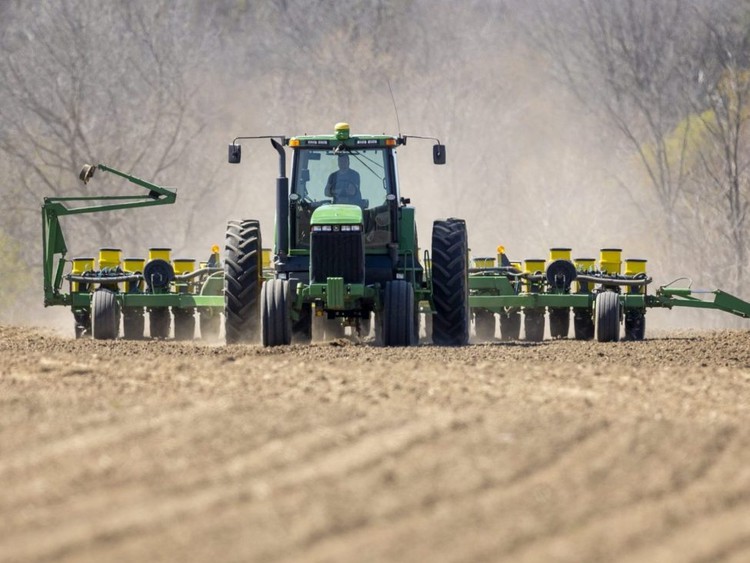
 apple.news
apple.news
The numbers are a bit higher on the Prairies: 10 per cent in Saskatchewan, four per cent each in Alberta and Manitoba, but long gone are the days when a third of us lived on farms. Gone, even, are the days when we or our parents grew up in rural Canada, then moved to the city.
Most Canadians don’t even have cousins who farm.
All of which goes a long way to explaining how our prime minister, a trust-fund baby who grew up in the sheltered neighbourhood of Mount Royal, could simply decree a 30 per cent reduction in the use of fertilizers to produce food.
This is akin to the disconnect Trudeau demonstrated last winter when he similarly decreed that all cross-border truckers, who for the first 20 months of the pandemic had been Canadians’ lifeline to vast quantities of imported produce and other food stuffs, suddenly had to be vaccinated if they wanted to continue running food across the line, something they had done for nearly two years without vaccines and without incident.
Justin Trudeau demonstrates a total lack of practical understanding of how our food is produced, where it comes from and how it gets into the Provigo down the block. He acts as if it is magically produced in the back of the store and just appears as needed on the shelves.
Another sign of Trudeau’s disconnect from the real world (and an indication that nothing matters to him as much as the cult of climate alarmism) is that he has proclaimed his new fertilizer-reduction regulation in the middle of the worst food inflation Canadian consumers have faced in 40 years.
The rest at the below Link:
GUNTER: Here's what Trudeau's fertilizer reduction plan will mean — Toronto Sun
On one side, my mother was the daughter of the Ford dealer and, on the other, the granddaughter of the GM dealer in the same small Saskatchewan town (which made for some interesting family dynamics). No farmer, she. Still, she used to warn that when the majority of Canadians no longer had any...
It’s organic man .Trudeau can farm. He's grew dope in the closet.
Do these cuts include the massive ecodisaster contributing indoor cannabis farms?
Do this look eco-friendly to you?
View attachment 15042
Not at all. Unless they've got a holding tank they are pumping nutrients down the drain and into the ecosystem.
As long as the electricity is generated by coal.Trudeau can farm. He's grew dope in the closet.
Do these cuts include the massive ecodisaster contributing indoor cannabis farms?
Do this look eco-friendly to you?
View attachment 15042
Or nat gas.As long as the electricity is generated by coal.
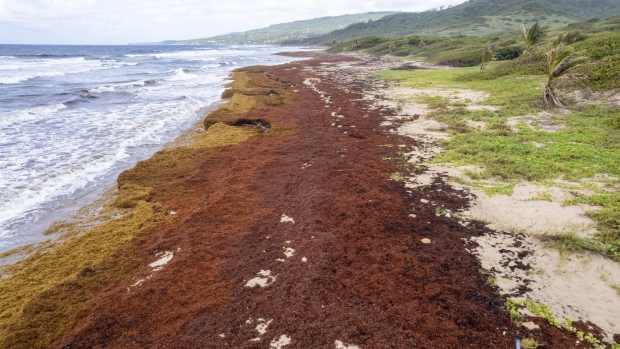
Record amount of seaweed is choking shores in the Caribbean
Near-record amounts of seaweed are smothering Caribbean coasts from Puerto Rico to Barbados, killing fish and other wildlife, choking tourism and releasing stinky, noxious gases.
Cha-ching!
As long as the electricity is generated by coal.
Aw well, there is always windmills and solar panels to keep the weed coming and do the trick.
I’m not sure whether or not to post this here or in the Omnibus Ukraine Thread?
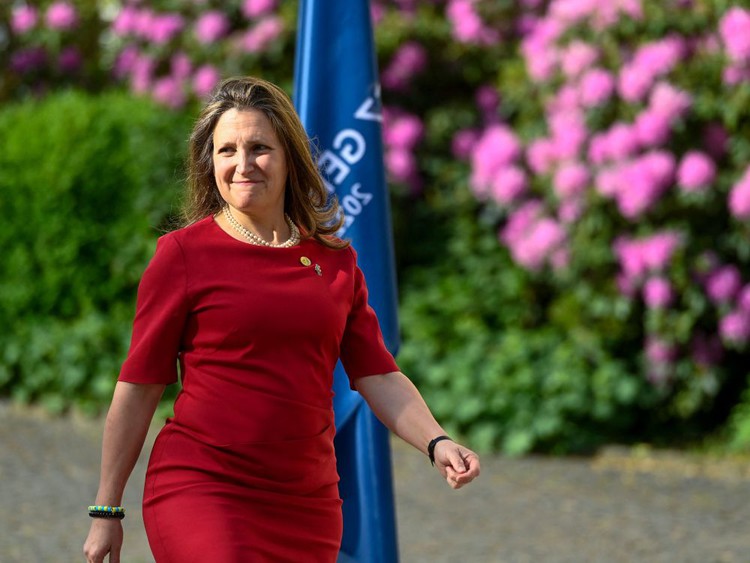
 apple.news
apple.news
Not since the aftermath of 9/11 has energy security been top of mind in so many countries, which, as the world’s fourth-largest producer of natural gas, offers a historic opportunity for Canada. But in order to capitalize on the current crisis and work toward a scenario in which dictators like Russian President Vladimir Putin will no longer be able to blackmail western countries by threatening to cut off energy supplies, Canada will need to fast-track the development of natural gas pipelines, LNG export terminals and other infrastructure. And in order for that to happen, the Liberals will need to settle the tension within their party between pragmatism and environmental idealism.

It’s not like the Liberals don’t know that Canada has a geopolitical and economic interest in providing for the energy security of our allies. Speaking alongside Germany’s foreign minister in Montreal on Wednesday, Foreign Affairs Minister Mélanie Joly said the Germans were interested in investing in Canadian liquefied natural gas (LNG) and that she has already had meetings with officials from three provinces to discuss potential projects.

At the same time, Deputy Prime Minister Chrystia Freeland told reporters in Saint John, N.B., that Canada has a “responsibility” to move ahead with new LNG projects. “I do think that energy security today, more than ever, is a question of security — full-stop. And Canada’s really lucky: we have a lot of energy. I think it is a political responsibility for us as a country to support our allies with energy security,” she said. “I think there is a role for the federal government, working with provincial governments, working with the private sector, working with our European allies to make this happen.”

No kidding. Yet this is the same woman who dismissed concerns about high gas prices, saying that, “From my perspective, this price increase in fuel costs is a reminder of why climate action is so important.”

And therein lies the tension at the heart of the Liberal party: on the one hand, we have a government carving out exemptions from its own economic sanctions levelled against Russia in order to return a turbine that Putin claimed was necessary to restore the Nord Stream pipeline to full capacity; and on the other, we have a party that’s unwilling to offer Canadians a break at the pumps by lowering gas taxes, is trying to reduce fertilizer usage at a time of global food shortages and is targeting the oil and gas sector with industry-specific emissions reductions in the midst of a looming European energy crisis.

Nevertheless, Freeland and Joly’s comments this week show that maybe, just maybe, there are some within the party who are starting to get that meeting our climate commitments cannot always come at the expense of heating our homes and putting food on our tables — or global peace and security, for that matter. But barring an expedited project on a scale that could only be pulled off by China, which built a 1,000-bed field hospital in 10 days at the start of the pandemic (score one for Justin Trudeau’s “basic dictatorship”), it’s unlikely that Canada will be able to build any LNG export terminals or new gas pipelines until long after the war in Ukraine has come to an end.

Many industry insiders are already skeptical that Germany, which currently doesn’t have any LNG terminals, will be able to meet its goal of building two of them within the next two years. A full LNG export terminal capable of liquefaction, processing and storage would take at least five years to build. And you can bet it would take much longer in a country like Canada, whose government can’t even manage to issue passports in a timely manner and made an overly bureaucratic infrastructure approvals process a centrepiece of its environmental agenda.

I was involved with a small Alberta energy company in the early 2000s, whose management went on to try to build an LNG facility on the West Coast, but was stymied by excessive bureaucracy and a lack of political will. It’s hard to imagine that anyone would be willing to start such a project after a decade of failed pipeline proposals and the imposition of Bill C-69, unless they had really deep pockets and decades of time on their hands. Canada could, however, turn itself into an LNG powerhouse without wasting huge sums of public money or nationalizing anymore pipelines. All it would need to do is tell the world that the country is “open for business,” to borrow a phrase.

That would mean signalling to the provinces that the federal government will no longer tolerate them standing in the way of pipelines and other energy-development projects that are in the national interest. It would entail going to companies and convincing them to build new gas pipelines. It would involve repealing Bill C-69 and removing policies that inhibit natural gas production. And it would entail reaching out to the Germans and private-sector investors elsewhere in the world to convince them to invest in Canadian energy.

The federal government, in other words, would need to get the ball rolling by showing that it will no longer stand in the way of Canadian energy projects. Unfortunately, despite strong comments by Freeland and Joly this week over the role Canada should play in Europe’s energy security, the actions taken by the Trudeau Liberals recently show that it’s business as usual around the cabinet table.

Jesse Kline: Does Freeland actually mean it when she says she wants LNG projects? — National Post
The Trudeau Liberals have been overrun by green idealists
Not since the aftermath of 9/11 has energy security been top of mind in so many countries, which, as the world’s fourth-largest producer of natural gas, offers a historic opportunity for Canada. But in order to capitalize on the current crisis and work toward a scenario in which dictators like Russian President Vladimir Putin will no longer be able to blackmail western countries by threatening to cut off energy supplies, Canada will need to fast-track the development of natural gas pipelines, LNG export terminals and other infrastructure. And in order for that to happen, the Liberals will need to settle the tension within their party between pragmatism and environmental idealism.

It’s not like the Liberals don’t know that Canada has a geopolitical and economic interest in providing for the energy security of our allies. Speaking alongside Germany’s foreign minister in Montreal on Wednesday, Foreign Affairs Minister Mélanie Joly said the Germans were interested in investing in Canadian liquefied natural gas (LNG) and that she has already had meetings with officials from three provinces to discuss potential projects.

At the same time, Deputy Prime Minister Chrystia Freeland told reporters in Saint John, N.B., that Canada has a “responsibility” to move ahead with new LNG projects. “I do think that energy security today, more than ever, is a question of security — full-stop. And Canada’s really lucky: we have a lot of energy. I think it is a political responsibility for us as a country to support our allies with energy security,” she said. “I think there is a role for the federal government, working with provincial governments, working with the private sector, working with our European allies to make this happen.”

No kidding. Yet this is the same woman who dismissed concerns about high gas prices, saying that, “From my perspective, this price increase in fuel costs is a reminder of why climate action is so important.”

And therein lies the tension at the heart of the Liberal party: on the one hand, we have a government carving out exemptions from its own economic sanctions levelled against Russia in order to return a turbine that Putin claimed was necessary to restore the Nord Stream pipeline to full capacity; and on the other, we have a party that’s unwilling to offer Canadians a break at the pumps by lowering gas taxes, is trying to reduce fertilizer usage at a time of global food shortages and is targeting the oil and gas sector with industry-specific emissions reductions in the midst of a looming European energy crisis.

Nevertheless, Freeland and Joly’s comments this week show that maybe, just maybe, there are some within the party who are starting to get that meeting our climate commitments cannot always come at the expense of heating our homes and putting food on our tables — or global peace and security, for that matter. But barring an expedited project on a scale that could only be pulled off by China, which built a 1,000-bed field hospital in 10 days at the start of the pandemic (score one for Justin Trudeau’s “basic dictatorship”), it’s unlikely that Canada will be able to build any LNG export terminals or new gas pipelines until long after the war in Ukraine has come to an end.

Many industry insiders are already skeptical that Germany, which currently doesn’t have any LNG terminals, will be able to meet its goal of building two of them within the next two years. A full LNG export terminal capable of liquefaction, processing and storage would take at least five years to build. And you can bet it would take much longer in a country like Canada, whose government can’t even manage to issue passports in a timely manner and made an overly bureaucratic infrastructure approvals process a centrepiece of its environmental agenda.

I was involved with a small Alberta energy company in the early 2000s, whose management went on to try to build an LNG facility on the West Coast, but was stymied by excessive bureaucracy and a lack of political will. It’s hard to imagine that anyone would be willing to start such a project after a decade of failed pipeline proposals and the imposition of Bill C-69, unless they had really deep pockets and decades of time on their hands. Canada could, however, turn itself into an LNG powerhouse without wasting huge sums of public money or nationalizing anymore pipelines. All it would need to do is tell the world that the country is “open for business,” to borrow a phrase.

That would mean signalling to the provinces that the federal government will no longer tolerate them standing in the way of pipelines and other energy-development projects that are in the national interest. It would entail going to companies and convincing them to build new gas pipelines. It would involve repealing Bill C-69 and removing policies that inhibit natural gas production. And it would entail reaching out to the Germans and private-sector investors elsewhere in the world to convince them to invest in Canadian energy.

The federal government, in other words, would need to get the ball rolling by showing that it will no longer stand in the way of Canadian energy projects. Unfortunately, despite strong comments by Freeland and Joly this week over the role Canada should play in Europe’s energy security, the actions taken by the Trudeau Liberals recently show that it’s business as usual around the cabinet table.

All that is needed is a change of government. Or, at least r3moving the convicted ecoterrorists from cabnet.
Just saw lots of cha Ching heading back to Saskabush when getting stopped by a 150 car potash train .Smoke and mirrors.
Trudeau is still using RCP 8.5. The IPCC itself has declared RCP 8.5 IMPLAUSIBLE. the "crisis" isnt reality and never existed or will exist.I’m not sure whether or not to post this here or in the Omnibus Ukraine Thread?

Jesse Kline: Does Freeland actually mean it when she says she wants LNG projects? — National Post
The Trudeau Liberals have been overrun by green idealistsapple.news
Not since the aftermath of 9/11 has energy security been top of mind in so many countries, which, as the world’s fourth-largest producer of natural gas, offers a historic opportunity for Canada. But in order to capitalize on the current crisis and work toward a scenario in which dictators like Russian President Vladimir Putin will no longer be able to blackmail western countries by threatening to cut off energy supplies, Canada will need to fast-track the development of natural gas pipelines, LNG export terminals and other infrastructure. And in order for that to happen, the Liberals will need to settle the tension within their party between pragmatism and environmental idealism.
View attachment 15063
It’s not like the Liberals don’t know that Canada has a geopolitical and economic interest in providing for the energy security of our allies. Speaking alongside Germany’s foreign minister in Montreal on Wednesday, Foreign Affairs Minister Mélanie Joly said the Germans were interested in investing in Canadian liquefied natural gas (LNG) and that she has already had meetings with officials from three provinces to discuss potential projects.
View attachment 15064
At the same time, Deputy Prime Minister Chrystia Freeland told reporters in Saint John, N.B., that Canada has a “responsibility” to move ahead with new LNG projects. “I do think that energy security today, more than ever, is a question of security — full-stop. And Canada’s really lucky: we have a lot of energy. I think it is a political responsibility for us as a country to support our allies with energy security,” she said. “I think there is a role for the federal government, working with provincial governments, working with the private sector, working with our European allies to make this happen.”
View attachment 15065
No kidding. Yet this is the same woman who dismissed concerns about high gas prices, saying that, “From my perspective, this price increase in fuel costs is a reminder of why climate action is so important.”
View attachment 15066
And therein lies the tension at the heart of the Liberal party: on the one hand, we have a government carving out exemptions from its own economic sanctions levelled against Russia in order to return a turbine that Putin claimed was necessary to restore the Nord Stream pipeline to full capacity; and on the other, we have a party that’s unwilling to offer Canadians a break at the pumps by lowering gas taxes, is trying to reduce fertilizer usage at a time of global food shortages and is targeting the oil and gas sector with industry-specific emissions reductions in the midst of a looming European energy crisis.
View attachment 15067
Nevertheless, Freeland and Joly’s comments this week show that maybe, just maybe, there are some within the party who are starting to get that meeting our climate commitments cannot always come at the expense of heating our homes and putting food on our tables — or global peace and security, for that matter. But barring an expedited project on a scale that could only be pulled off by China, which built a 1,000-bed field hospital in 10 days at the start of the pandemic (score one for Justin Trudeau’s “basic dictatorship”), it’s unlikely that Canada will be able to build any LNG export terminals or new gas pipelines until long after the war in Ukraine has come to an end.
View attachment 15068
Many industry insiders are already skeptical that Germany, which currently doesn’t have any LNG terminals, will be able to meet its goal of building two of them within the next two years. A full LNG export terminal capable of liquefaction, processing and storage would take at least five years to build. And you can bet it would take much longer in a country like Canada, whose government can’t even manage to issue passports in a timely manner and made an overly bureaucratic infrastructure approvals process a centrepiece of its environmental agenda.
View attachment 15069
I was involved with a small Alberta energy company in the early 2000s, whose management went on to try to build an LNG facility on the West Coast, but was stymied by excessive bureaucracy and a lack of political will. It’s hard to imagine that anyone would be willing to start such a project after a decade of failed pipeline proposals and the imposition of Bill C-69, unless they had really deep pockets and decades of time on their hands. Canada could, however, turn itself into an LNG powerhouse without wasting huge sums of public money or nationalizing anymore pipelines. All it would need to do is tell the world that the country is “open for business,” to borrow a phrase.
View attachment 15070
That would mean signalling to the provinces that the federal government will no longer tolerate them standing in the way of pipelines and other energy-development projects that are in the national interest. It would entail going to companies and convincing them to build new gas pipelines. It would involve repealing Bill C-69 and removing policies that inhibit natural gas production. And it would entail reaching out to the Germans and private-sector investors elsewhere in the world to convince them to invest in Canadian energy.
View attachment 15071
The federal government, in other words, would need to get the ball rolling by showing that it will no longer stand in the way of Canadian energy projects. Unfortunately, despite strong comments by Freeland and Joly this week over the role Canada should play in Europe’s energy security, the actions taken by the Trudeau Liberals recently show that it’s business as usual around the cabinet table.
View attachment 15072
Why werent the Librigarchs notified?
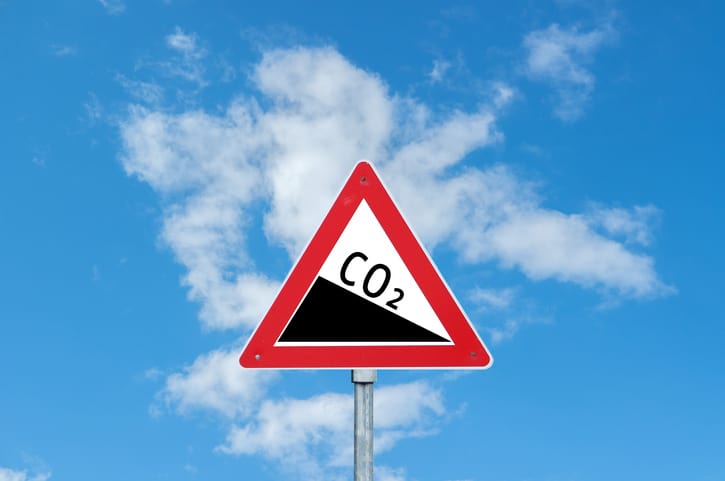
Worst-Case Emissions Scenario RCP8.5 Is Dead: BBC - Competitive Enterprise Institute
BBC News last week rang down the curtain on the climate science fraternity’s long running malpractice of projecting climate change impacts using a worst-case emissions scenario as if it were a business-as-usual scenario.
A short one. They come back twice as long when empty.Just saw lots of cha Ching heading back to Saskabush when getting stopped by a 150 car potash train .
It’s always interesting to hear Liberals accuse others of stoking division when that seems to be their bread and butter.
This week it was Liberal MP Lloyd Longfield, a backbencher from Guelph, who was chosen to be the face of a column on fertilizer that accused opponents of the Trudeau government’s plan of stoking division for political gain.
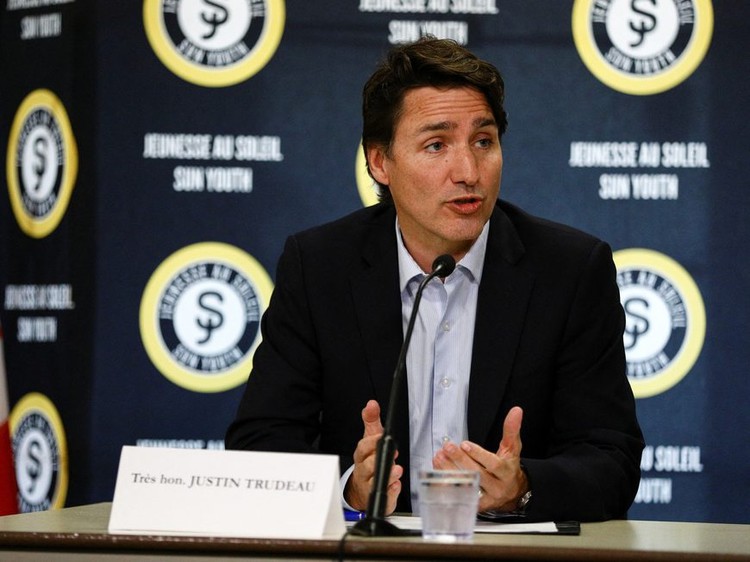
 apple.news
He, and the government he serves, might want to look in the mirror.
apple.news
He, and the government he serves, might want to look in the mirror.
If you haven’t heard, the Trudeau Liberals want Canadian farmers to reduce their emissions from fertilizer, specifically nitrous oxide emissions, to 30% below 2020 levels by 2030. The government is calling for an absolute emissions reduction, but the agriculture industry would rather talk about reducing emissions on an intensity basis – as in using the same amount of fertilizer but producing more food.
No dice, say the Trudeau Liberals; thus the standoff and the anger coming from farmers and industry groups. If imposed, this plan will lead to lower crop yields for farmers and lower incomes but higher food prices for families.
In his op-ed, Longfield argued that the federal government plan doesn’t include a “fertilizer ban” but I don’t know anyone claiming it’s a “ban” rather than a 30% reduction.
While the government says they aren’t requiring a 30% reduction in fertilizer use, the individual farmers and industry groups I’m speaking with say a 30% reduction in emissions effectively requires a 30% reduction in fertilizer. Most farmers in Canada are already using what is referred to as the “4R system” which stands for right source, right rate, right time, right place.
Fertilizer is one of the most expensive inputs a farmer has in the best of years; for those following the industry, prices have skyrocketed in recent months. No one wants to be using more fertilizer than is absolutely necessary, and they are using reduction strategies.
“I only use as much as I need to grow the crop,” a farmer from Southwestern Ontario told me last month.
“You can only afford so much of this,” said another farmer from Saskatchewan.
Meanwhile, industry groups have been wondering where this reduction target came from, given that they were not consulted before the target was announced.
“There was no prior consultation. There has been no modelling or analysis provided to explain this 30% target. It appears to have been pulled out of thin air,” an industry source said in July.
The target came not from the Agriculture Ministry but the Environment Ministry, where former Greenpeace activist and Environment Minister Steven Guilbeault is being pushed by his former colleagues. Earlier this week, Greenpeace put out a news release, stating “emissions from synthetic nitrogen fertilizer in Canada are among the highest in the world per capita.”
This is what is driving the Trudeau government, the agenda of Greenpeace. While Canada is higher on the emissions from fertilizer per capita measurement, that’s because we’re a large country with few people.
When measured by the amount of fertilizer used per hectare of cropland, Canada fares incredibly well, according to the United Nations Food and Agriculture Organization.
While Canadian farmers use an average of 80 kilograms of fertilizer per hectare of land, that figure jumps to 109 kilograms in France, 120 kilograms in India, 160 kilograms in the United Kingdom, 190 kilograms in China and 205 kilograms in the Netherlands.
Farmers and industry groups are constantly looking for improvements and are open to working with the federal government to improve their systems. Right now, though, they feel like they’re being lectured to by bureaucrats in Ottawa rather than listened to by a government that says they want to be partners.
Instead of fighting straw men like the “fertilizer ban,” the Trudeau government should be taking time to speak to farmers and try to understand their concerns.
This week it was Liberal MP Lloyd Longfield, a backbencher from Guelph, who was chosen to be the face of a column on fertilizer that accused opponents of the Trudeau government’s plan of stoking division for political gain.
LILLEY: Trudeau doesn't like the opposition to his fertilizer plan — Toronto Sun
It’s always interesting to hear Liberals accuse others of stoking division when that seems to be their bread and butter. He, and the government he serves, might want to look in the mirror. If you haven’t heard, the Trudeau Liberals want Canadian farmers to reduce their emissions from fertilizer...
If you haven’t heard, the Trudeau Liberals want Canadian farmers to reduce their emissions from fertilizer, specifically nitrous oxide emissions, to 30% below 2020 levels by 2030. The government is calling for an absolute emissions reduction, but the agriculture industry would rather talk about reducing emissions on an intensity basis – as in using the same amount of fertilizer but producing more food.
No dice, say the Trudeau Liberals; thus the standoff and the anger coming from farmers and industry groups. If imposed, this plan will lead to lower crop yields for farmers and lower incomes but higher food prices for families.
In his op-ed, Longfield argued that the federal government plan doesn’t include a “fertilizer ban” but I don’t know anyone claiming it’s a “ban” rather than a 30% reduction.
While the government says they aren’t requiring a 30% reduction in fertilizer use, the individual farmers and industry groups I’m speaking with say a 30% reduction in emissions effectively requires a 30% reduction in fertilizer. Most farmers in Canada are already using what is referred to as the “4R system” which stands for right source, right rate, right time, right place.
Fertilizer is one of the most expensive inputs a farmer has in the best of years; for those following the industry, prices have skyrocketed in recent months. No one wants to be using more fertilizer than is absolutely necessary, and they are using reduction strategies.
“I only use as much as I need to grow the crop,” a farmer from Southwestern Ontario told me last month.
“You can only afford so much of this,” said another farmer from Saskatchewan.
Meanwhile, industry groups have been wondering where this reduction target came from, given that they were not consulted before the target was announced.
“There was no prior consultation. There has been no modelling or analysis provided to explain this 30% target. It appears to have been pulled out of thin air,” an industry source said in July.
The target came not from the Agriculture Ministry but the Environment Ministry, where former Greenpeace activist and Environment Minister Steven Guilbeault is being pushed by his former colleagues. Earlier this week, Greenpeace put out a news release, stating “emissions from synthetic nitrogen fertilizer in Canada are among the highest in the world per capita.”
This is what is driving the Trudeau government, the agenda of Greenpeace. While Canada is higher on the emissions from fertilizer per capita measurement, that’s because we’re a large country with few people.
When measured by the amount of fertilizer used per hectare of cropland, Canada fares incredibly well, according to the United Nations Food and Agriculture Organization.
While Canadian farmers use an average of 80 kilograms of fertilizer per hectare of land, that figure jumps to 109 kilograms in France, 120 kilograms in India, 160 kilograms in the United Kingdom, 190 kilograms in China and 205 kilograms in the Netherlands.
Farmers and industry groups are constantly looking for improvements and are open to working with the federal government to improve their systems. Right now, though, they feel like they’re being lectured to by bureaucrats in Ottawa rather than listened to by a government that says they want to be partners.
Instead of fighting straw men like the “fertilizer ban,” the Trudeau government should be taking time to speak to farmers and try to understand their concerns.
I’m not sure whether or not to post this here or in the Omnibus Ukraine Thread?

Jesse Kline: Does Freeland actually mean it when she says she wants LNG projects? — National Post
The Trudeau Liberals have been overrun by green idealistsapple.news
Not since the aftermath of 9/11 has energy security been top of mind in so many countries, which, as the world’s fourth-largest producer of natural gas, offers a historic opportunity for Canada. But in order to capitalize on the current crisis and work toward a scenario in which dictators like Russian President Vladimir Putin will no longer be able to blackmail western countries by threatening to cut off energy supplies, Canada will need to fast-track the development of natural gas pipelines, LNG export terminals and other infrastructure. And in order for that to happen, the Liberals will need to settle the tension within their party between pragmatism and environmental idealism.
View attachment 15063
It’s not like the Liberals don’t know that Canada has a geopolitical and economic interest in providing for the energy security of our allies. Speaking alongside Germany’s foreign minister in Montreal on Wednesday, Foreign Affairs Minister Mélanie Joly said the Germans were interested in investing in Canadian liquefied natural gas (LNG) and that she has already had meetings with officials from three provinces to discuss potential projects.
View attachment 15064
At the same time, Deputy Prime Minister Chrystia Freeland told reporters in Saint John, N.B., that Canada has a “responsibility” to move ahead with new LNG projects. “I do think that energy security today, more than ever, is a question of security — full-stop. And Canada’s really lucky: we have a lot of energy. I think it is a political responsibility for us as a country to support our allies with energy security,” she said. “I think there is a role for the federal government, working with provincial governments, working with the private sector, working with our European allies to make this happen.”
View attachment 15065
No kidding. Yet this is the same woman who dismissed concerns about high gas prices, saying that, “From my perspective, this price increase in fuel costs is a reminder of why climate action is so important.”
View attachment 15066
And therein lies the tension at the heart of the Liberal party: on the one hand, we have a government carving out exemptions from its own economic sanctions levelled against Russia in order to return a turbine that Putin claimed was necessary to restore the Nord Stream pipeline to full capacity; and on the other, we have a party that’s unwilling to offer Canadians a break at the pumps by lowering gas taxes, is trying to reduce fertilizer usage at a time of global food shortages and is targeting the oil and gas sector with industry-specific emissions reductions in the midst of a looming European energy crisis.
View attachment 15067
Nevertheless, Freeland and Joly’s comments this week show that maybe, just maybe, there are some within the party who are starting to get that meeting our climate commitments cannot always come at the expense of heating our homes and putting food on our tables — or global peace and security, for that matter. But barring an expedited project on a scale that could only be pulled off by China, which built a 1,000-bed field hospital in 10 days at the start of the pandemic (score one for Justin Trudeau’s “basic dictatorship”), it’s unlikely that Canada will be able to build any LNG export terminals or new gas pipelines until long after the war in Ukraine has come to an end.
View attachment 15068
Many industry insiders are already skeptical that Germany, which currently doesn’t have any LNG terminals, will be able to meet its goal of building two of them within the next two years. A full LNG export terminal capable of liquefaction, processing and storage would take at least five years to build. And you can bet it would take much longer in a country like Canada, whose government can’t even manage to issue passports in a timely manner and made an overly bureaucratic infrastructure approvals process a centrepiece of its environmental agenda.
View attachment 15069
I was involved with a small Alberta energy company in the early 2000s, whose management went on to try to build an LNG facility on the West Coast, but was stymied by excessive bureaucracy and a lack of political will. It’s hard to imagine that anyone would be willing to start such a project after a decade of failed pipeline proposals and the imposition of Bill C-69, unless they had really deep pockets and decades of time on their hands. Canada could, however, turn itself into an LNG powerhouse without wasting huge sums of public money or nationalizing anymore pipelines. All it would need to do is tell the world that the country is “open for business,” to borrow a phrase.
View attachment 15070
That would mean signalling to the provinces that the federal government will no longer tolerate them standing in the way of pipelines and other energy-development projects that are in the national interest. It would entail going to companies and convincing them to build new gas pipelines. It would involve repealing Bill C-69 and removing policies that inhibit natural gas production. And it would entail reaching out to the Germans and private-sector investors elsewhere in the world to convince them to invest in Canadian energy.
View attachment 15071
The federal government, in other words, would need to get the ball rolling by showing that it will no longer stand in the way of Canadian energy projects. Unfortunately, despite strong comments by Freeland and Joly this week over the role Canada should play in Europe’s energy security, the actions taken by the Trudeau Liberals recently show that it’s business as usual around the cabinet table.
View attachment 15072
She does look a lot better looking upside down. Of course her being one of the WEF globalist darlings she is not for anything but windmills and solar panels and electric vehicles that needs and runs on fossil fuels. Of course if she goes anywhere in the world she will always take something that uses fossil fuels and which will contribute to global warming. Why do so many people keep listening to this biotch? Aw well.
